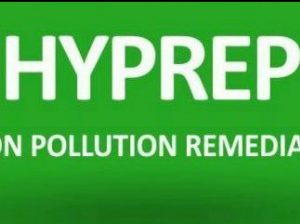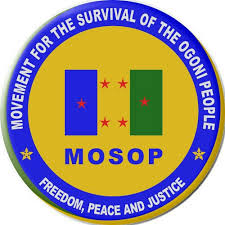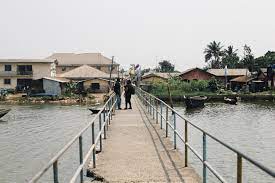 Mkpoikana Udoma
Mkpoikana UdomaPort Harcourt — The Hydrocarbon Pollution Remediation Project, HYPREP, says it has successfully planted over one million mangrove seedlings on Ogoni shorelines in an effort to restore the devastated ecosystems of Ogoniland, with more efforts targeted at planting more.
The announcement was made during a field trip to HYPREP project sites by a coalition of civil society organisations focused on climate change and environmental restoration in the Niger Delta.
The trip took participants to oil spills heavily impacted Goi and Bomu communities, both in Gokana Local Government Area of Rivers State, as attendees witnessed the ongoing remediation efforts, including shoreline contractors tackling oil pollution in Goi and mangrove restoration in Bomu.
Mr. Peter Lenu, Technical Assistant to HYPREP Project Coordinator on shoreline cleanup, said the planting of over one million mangrove seedlings was crucial in restoring the biodiversity and ecological balance of Ogoniland, which has been devastated by decades of oil pollution.
Lenu emphasised that regarding climate change, HYPREP’s progress includes mangrove restoration, shoreline cleanup, environmental remediation and provision of potable water to Ogoni communities.
“They (civil society groups) requested for a field trip to HYPREP work site for a first hand knowledge of environmental remediation, restoration and other projects of HYPREP in addressing the impact of oil pollution in Ogoniland.
“So we went to Goi, being one of the heavily impacted communities in Ogoniland. And they saw how the shoreline contractors were on sites addressing the oil pollution in Goi.
“We also went to Bomu where HYPREP is carrying out mangrove restoration, specifically we went to areas where HYPREP has planted mangroves seedlings to revegetate and restore the devastated ecosystem. We have planted over a million mangrove seedlings as we speak, and we are still planting more,” he said.
A participant and lecturer at the University of Port Harcourt, Dr. Chika Nwankwo, expressed optimism about the progress made since her last visit to Ogoniland seven years ago.
Nwankwo, who teaches at the Department of Science Laboratory Technology at the university referenced the drastic improvements in environmental conditions compared to previous years, when oil contamination was evident.
“We understand that HYPREP has been on mangrove restoration project and so we decided to go and have a look at the sites, to see what is going on and how the intervention of HYPREP has been.
“HYPREP has done a great job, there has been a lot of improvement from the last time I went there seven years ago.
“Seven years ago, I took samples of oil spills from Gokana as part of my PhD thesis, and you could even see the oil on the water and the heavy impact then, but today there is a huge difference and with what I have seen so far, there is hope for the Niger Delta and Ogoniland,” he stated.
However, concerns about the pace of the project were raised by Mr Emmanuel Umoh from the Peace Point Development Foundation, who acknowledged HYPREP’s efforts but urged more action, citing $1 billion released for the project.
He said: “HYPREP has tried but they need to do more. From my records over $1billion has been released so far for the project, and what I have seen on ground does not match the money.
“Human lives and livelihoods in Ogoniland have been severely impacted, and we need to see more tangible results from HYPREP for the people of Ogoni.”



